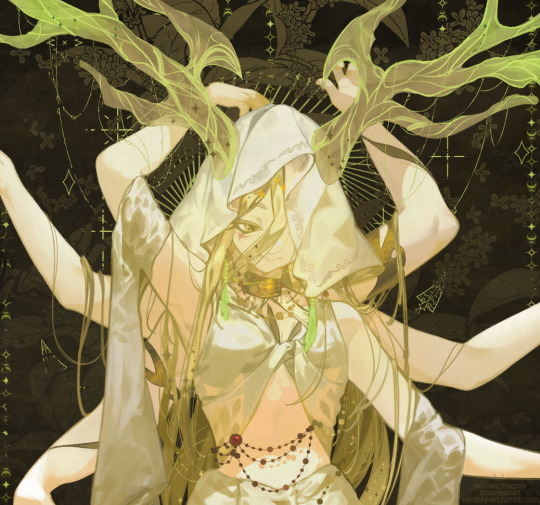#the abundance
Text
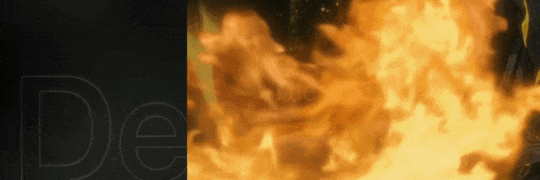

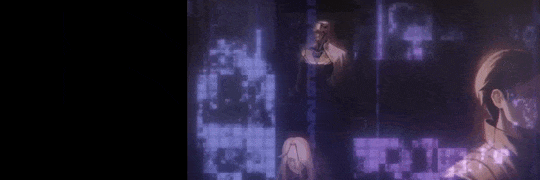

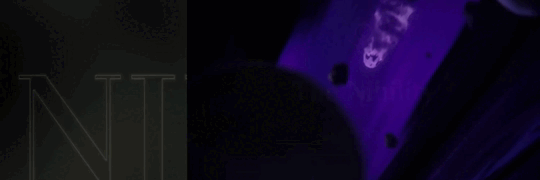
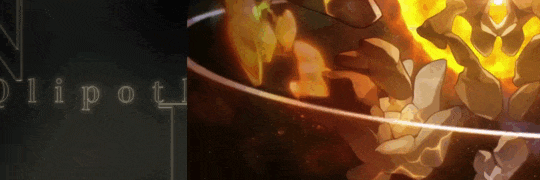
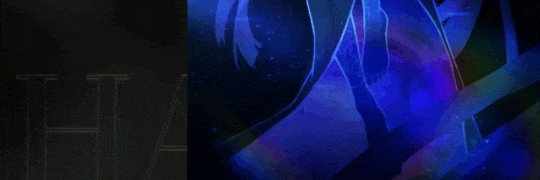
The Aeons of Honkai Star Rail
"Countless shooting stars streak across the night sky... If you can pick the right one, it will carry your wish to thousands of distant worlds."
#honkai star rail#hsr#star rail#aeons#aeon#Nanook#The Destruction#Lan#The Hunt#Nous#The Erudition#Yaoshi#The Abundance#IX#The Nihility#Qlipoth#The Perservation#Xipe#The Harmony#Nanook can destroy me anytime
1K notes
·
View notes
Text

Yaoshi the Abundance
#honkai star rail#hsr#yaoshi#the abundance#honkai star rail yaoshi#hsr yaoshi#hsr aeons#honkai star rail aeons#doodle#was about time i drew yaoshi#they have the aeon design of all time for me#their first appearance in the sim made me fall for them further lol
618 notes
·
View notes
Text
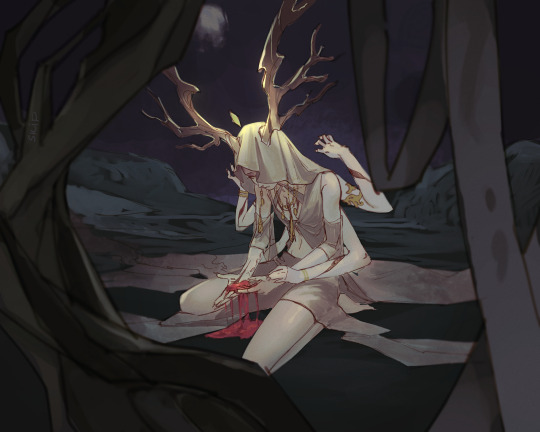
Yaoshi The Abundance
"The flowers share their petals without care, waiting for their inevitable withering destiny. The birds fly high in song, moving toward their inevitable crash and death. The streams flow rapidly with life, in a direction where they inevitably run dry. Why must all things come to an end? There must be a miracle somewhere in the universe that can cure the disease known as finality."
— Life Is Too Short by Anonymous
i was inspired by this quote in the data bank
379 notes
·
View notes
Text
જ⁀ 𝐀𝐁𝐈𝐃𝐄 in me as I 𝐀𝐁𝐈𝐃𝐄 𝐈𝐍 𝐘𝐎𝐔
side comments: wanted to write for our Nanook and Yaoshi some spoilers of course, violence, Nanook's is kinda dark, reader is known to be the 'arbitrator' or 'mediator.

Whenever a tale, record or paper regarding the elusive and ancient Aeons of the vast cosmos, you, the Arbitrator always weave into each battle, dispute and archive.
You unified and ruled each contestation and difference and have lingered amongst the Aeons yet was never considered one yourself: like a fine mist braiding through the folds of the universe, unravelling and sewing it together.
And by 'it', you meant the Aeons.
While the Aeons were born and bound to the ideologies they arose from with a passionate frenzy, you merely existed- and for what purpose? Historians debated if you were a presence higher than that of Aeons: a mystic authoritarian figure whose one wave or snap of their fingers would bring an undisputed settlement, like a court judge.
However, others consider you to be less of a judge and more of a mediator. A force that ensures the Aeons keep within their bounds and do not screw the universe over entirely. Some reckon that you are an Aeon whose gaze never spared a glance. There are even theories that suggest that Lan is your pupil of sorts. In addition, some pay no mind to you at all in the grand ever-present scheme of Aeons and their ploys.
Regardless of what myriad debates, theories or conjectures rise among devout followers, skeptics, historians and the average being, an indisputable fact remains. No matter the conflict, you are always found amongst the lines in the story or perhaps only mentioned at the very end. A peculiar and reiterating occurrence that even a child could predict.
Alas, only the Aeons themselves will know who you are to them

𝐍𝐀𝐍𝐎𝐎𝐊 - the destruction
Nanook believes you are a nuisance at best. However, you choose your disputes carefully and at times, unpredictably.
Out of every Aeon you have come between, Nanook is by far the one seen most often.
Behind your back, they scoff at mentioning of your name and title and more so at the Aeons who share an ounce of respect for your inexplicable ability or deem you a 'peacemaker'.
However, your trait of never showing favour towards one Aeon or another is like a double-edged sword.
Nanook could hardly recount the myriad amount of times they had benefited from your mediation.
What dumbfounds Nanook is that beings think of you as powerful.
You quite frankly aren't, you're simply a 'good talker.'
And they loathe that.
You know their mind and toy with it, rendering with their plans only for them to alter it. You thrive on their vexations and revel in the might of their aggravation and disgust. Instead of annihilating sparks of life, you force them to cherish it within the palms of their savage hands.
Do you find pleasure in their abhorrence? Seeking it out for laughter's sake?
Nevertheless, Nanook knows you are not shallow or in any resemblance towards Aha.
In addition, Nanook knows you are neither a peacemaker nor a chaos-bringer.
There are moments when you come to Nanook and observe them acutely; having experienced your prying eyes for millennia, they remain steadfast and silent in your presence. Only then can Nanook appreciate you, not for your skill, however, for a delectable and insatiable opportunity to deliver their final gift to humanity: destruction.
For now, Nanook will reign havoc on the planets you grow fond of while quietly vying for a sliver of your attention in hopes of ultimately standing victorious in the eternal game of interastral tug of war.
Perhaps Nanook will then adore you for all the delight you brought to a now, empty universe.

𝐘𝐀𝐎𝐒𝐇𝐈 - the abundance
Yaoshi believes you are in mortal terms: ‘god sent.’
In comparison to Nanook, Yaoshi does not harbour ill will.
On the contrary, they are fascinated by you.
Why do you come between the Aeons? Do you have preferences? What pleases you?
Yes, there are times when you settle disputes and foil the plans of The Abundance. However, it does not matter! Yaoshi will continue to spread the blessings of eternal life and never-ending spings out into the universe while they watch you from afar.
However, the Aeons are selfish, cunning and self-absorbed. They will gladly swallow any opportunity that comes their way. Hence, Yaoshi's 'curiosity' grows beyond the confines of the word itself.
If you can thwart the plans of Nanook- what else can you do?
Yaoshi admires the growth and sprouting of life from their fingertips: how a flower blossoms vibrantly, staying in said form for eternity.
Thus, Yaoshi can only lick their lips and quell their ever-growing hunger.
What wonder would it be to see you bloom and bring waves of life with a mere sway of your arms or snap of your finger? Worlds can be born and no harm shall tread upon the universe- such a reality can now be achieved...
For now, Yaoshi will whisper sweet words of praise in your ear like honey; gradually drowning you in each sugary drop until they can dress you up in whatever they may fancy. You'll be the star of the universe, you'll be the epitome of ardency and everlasting life. Worshiped and praised: the universe will string together songs of your benevolence!
Alas, Yaoshi must limit their daydreaming... work must be done to accomplish their ultimate dream and it has only just begun.
masterlist

I might do a part two with the other Aeons... probably Lan and Xipe. I honestly wanted to get this out of my drafts.
#honkai star rail#honkai star rail angst#honkai star rail x reader#nanook x reader#nanook#yaoshi#yaoshi x reader#hsr x reader#hsr fanfic#the abundance#astral express#trailblazer#writing ᝰ.ᐟ
227 notes
·
View notes
Text
HSR Aeons Reacting to Their Spouse Hug Them
(GN!Reader)
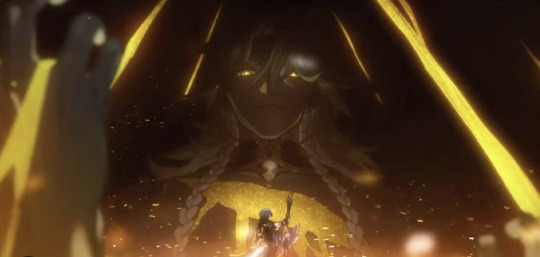
Nanook:
(The Destruction)
(Male Aeon/Went Off By Looks)
The Aeon Of Destruction is not one for physical contact as you can tell by his title. He destroys anything that comes in his way with no hesitation whatsoever. Though for you he may make little exceptions. After all you are the lover of this strong being.
You come out of nowhere and give your partner a hug burying your head into his chest catching a slight flinch from him.
“What’s this?” He says with a commanding tone and stern face as usual.
“A hug.” You smile and tighten the grip making him falter a bit.
“Oh.” He goes slightly limp in your arms but doesn't break away. You catch a subtle blush on his ears.

Yaoshi:
(The Abundance)
(Gender Neutral Aeon/Not Specified in game)
The Aeon Of Abundance has one of the most interesting personalities. Calm and delicate demeanor but can easily harm if needed. They treat you with care because you are their beloved after all.
You surprise your lover with a hug, collapsing your body into theirs. You watch their green pupils dilate in surprise but calm after they realize.
“What's this about dear?” A small smile reappears in their mouth.
“I wanted to hug you.” You chuckle and hug tighter.
“I see.” You feel all their arms wrap around you trying to secure you from all the evil outside.
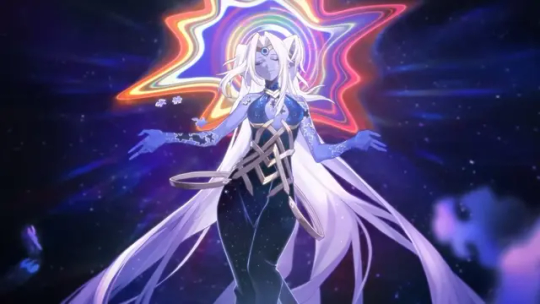
Xipe:
(Harmony)
(Female Aeon/Went Off By Looks)
The Aeon Of Harmony is known for her talents and calm but terrifying auras. A title known for kindness but a magnificent body known for pain. She treats you with love and devotion making her a perfect lover.
You decide to burst out of thin air and wrap your arms around her, embracing her tightly. She seems unfazed by this and her mouth stays with that small sweet smile.
“Are you in dire need of my affection dear?” She chuckles ruffling your hair softly.
“Wanted to hug you.” You smile back hugging her tighter. This results in a small laugh out of her and she hugs you back. You feel the intense power of an Aeon around you.
“Of course.” She gives you a warm look.
#hsr x reader#hsr aeons#fluff#romance#strength#honkai star rail#x reader#hugs#nanook#hsr xipe#yaoshi#the abundance#the destruction#harmony#star rail#gender neutral mc#gender neutral reader#gender neutral y/n
262 notes
·
View notes
Text
yaoshi the abundance likers will see yaoshi and be like "wow i would become an abomination for them." Anyways i am yaoshi likers
#✧— aphe's musings.#LOOK. LISTEN.#I WOULD TAKE THEIR IMMORTALITY KNOWING I WOULD EVENTUALLY LOSE MY MIND#WHICH IS EQUIVALENT TO DYING#I WOULD DO IT.....#ESPECIALLY IF THERE WAS A PRETTY ASS ELDRITCH DEITY OFFERING IT TO ME ❗️❗️❗️❗️❗️❗️❗️#/hj /lh#hsr yaoshi#yaoshi#the abundance#hsr aeons#yaoshi the abundance
50 notes
·
View notes
Text
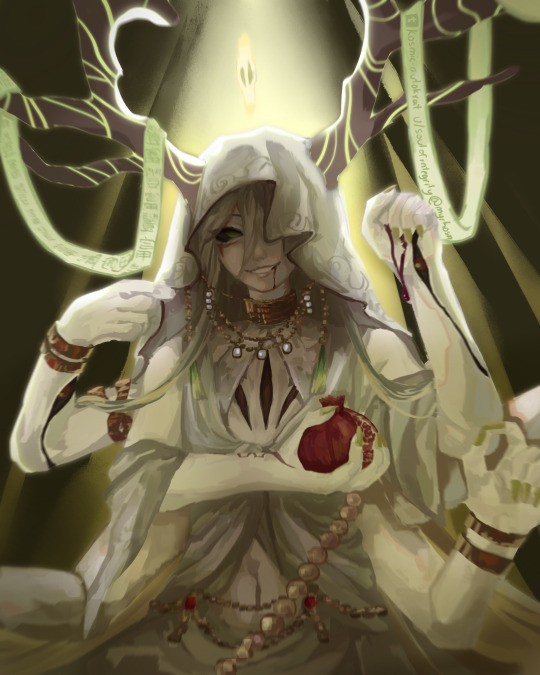
six-armed aeon of abundance
65 notes
·
View notes
Text

sketching things because LUOCHA DID THE OTTO POSE AND I FEEL FEELINGS
#art#sketch#fanart#honkai fanart#honkai star rail#luocha#yaoshi#the abundance#i love my men a little evil#even if they are actually not#its the drama i live for
58 notes
·
View notes
Text

The Abundance - Yaoshi
"Let your staff strike the earth, they say.
Once, and again.
The tender sprounts will grow to the sky and the dew that falls from their branches will rid you of sickness and poison"
88 notes
·
View notes
Text
”lan and yaoshi are enemies and lan wants to kill them and also theyre both somewhat eldritch gods” so what im hearing is that they should kiss
#whats the ship name#yaolan?? lanshi??#anyways enemies and lovers real#hsr#honkai star rail#the hunt#the abundance#lan the hunt#yaoshi the abundance#lan#yaoshi
30 notes
·
View notes
Text

human form yaoshi ft. patric bateman
#digital art#artists on tumblr#my art#honkai star rail#hsr#hsr fanart#hsr aeons#hsr yaoshi#yaoshi#yaoshi the abundance#the abundance#redraw#american psycho#illustration#simulated universe
22 notes
·
View notes
Text

ooof yaoshi sure was something to draw but heyyyy i'm back with the chibisSSSssss idk if i'll post them weekly or bi-weekly but ayyy
Nanook- Qlipoth- Lan
43 notes
·
View notes
Text
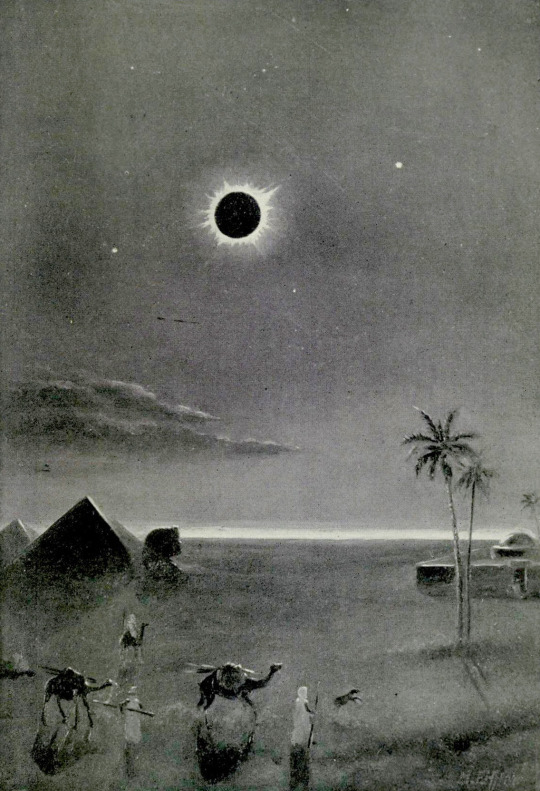
[From my blogging buddy Steve Renfro]
+
A large excerpt from Annie Dillards essay on a total eclipse in 1979. I probably go back and read it just about every year for the last 8 years. Posted without permission.
“I had seen a partial eclipse in 1970. A partial eclipse is very interesting. It bears almost no relation to a total eclipse. Seeing a partial eclipse bears the same relation to seeing a total eclipse as kissing a man does to marrying him, or as flying in an airplane does to falling out of an airplane. Although the one experience precedes the other, it in no way prepares you for it. During a partial eclipse the sky does not darken—not even when 94 percent of the sun is hidden. Nor does the sun, seen colorless through protective devices, seem terribly strange. We have all seen a sliver of light in the sky; we have all seen the crescent moon by day. However, during a partial eclipse the air does indeed get cold, precisely as if someone were standing between you and the fire. And blackbirds do fly back to their roosts. I had seen a partial eclipse before, and here was another.
What you see in an eclipse is entirely different from what you know. It is especially different for those of us whose grasp of astronomy is so frail that, given a flashlight, a grapefruit, two oranges, and 15 years, we still could not figure out which way to set the clocks for daylight saving time. Usually it is a bit of a trick to keep your knowledge from blinding you. But during an eclipse it is easy. What you see is much more convincing than any wild-eyed theory you may know.
You may read that the moon has something to do with eclipses. I have never seen the moon yet. You do not see the moon. So near the sun, it is as completely invisible as the stars are by day. What you see before your eyes is the sun going through phases. It gets narrower and narrower, as the waning moon does, and, like the ordinary moon, it travels alone in the simple sky. The sky is of course background. It does not appear to eat the sun; it is far behind the sun. The sun simply shaves away; gradually, you see less sun and more sky.
The sky’s blue was deepening, but there was no darkness. The sun was a wide crescent, like a segment of tangerine. The wind freshened and blew steadily over the hill. The eastern hill across the highway grew dusky and sharp. The towns and orchards in the valley to the south were dissolving into the blue light. Only the thin river held a trickle of sun.
Now the sky to the west deepened to indigo, a color never seen. A dark sky usually loses color. This was a saturated, deep indigo, up in the air. Stuck up into that unworldly sky was the cone of Mount Adams, and the alpenglow was upon it. The alpenglow is that red light of sunset that holds out on snowy mountaintops long after the valleys and tablelands are dimmed. “Look at Mount Adams,” I said, and that was the last sane moment I remember.
I turned back to the sun. It was going. The sun was going, and the world was wrong. The grasses were wrong; they were platinum. Their every detail of stem, head, and blade shone lightless and artificially distinct as an art photographer’s platinum print. This color has never been seen on Earth. The hues were metallic; their finish was matte. The hillside was a 19th-century tinted photograph from which the tints had faded. All the people you see in the photograph, distinct and detailed as their faces look, are now dead. The sky was navy blue. My hands were silver. All the distant hills’ grasses were finespun metal that the wind laid down. I was watching a faded color print of a movie filmed in the Middle Ages; I was standing in it, by some mistake. I was standing in a movie of hillside grasses filmed in the Middle Ages. I missed my own century, the people I knew, and the real light of day.
I looked at Gary. He was in the film. Everything was lost. He was a platinum print, a dead artist’s version of life. I saw on his skull the darkness of night mixed with the colors of day. My mind was going out; my eyes were receding the way galaxies recede to the rim of space. Gary was light-years away, gesturing inside a circle of darkness, down the wrong end of a telescope. He smiled as if he saw me; the stringy crinkles around his eyes moved. The sight of him, familiar and wrong, was something I was remembering from centuries hence, from the other side of death: Yes, that is the way he used to look, when we were living. When it was our generation’s turn to be alive. I could not hear him; the wind was too loud. Behind him the sun was going. We had all started down a chute of time. At first it was pleasant; now there was no stopping it. Gary was chuting away across space, moving and talking and catching my eye, chuting down the long corridor of separation. The skin on his face moved like thin bronze plating that would peel.
From all the hills came screams. A piece of sky beside the crescent sun was detaching. It was a loosened circle of evening sky, suddenly lit from the back. It was an abrupt black body out of nowhere; it was a flat disk; it was almost over the sun. That is when there were screams. At once this disk of sky slid over the sun like a lid. The sky snapped over the sun like a lens cover. The hatch in the brain slammed. Abruptly it was dark night, on the land and in the sky. In the night sky was a tiny ring of light. The hole where the sun belongs is very small. A thin ring of light marked its place. There was no sound. The eyes dried, the arteries drained, the lungs hushed. There was no world. We were the world’s dead people rotating and orbiting around and around, embedded in the planet’s crust, while the Earth rolled down. Our minds were light-years distant, forgetful of almost everything. Only an extraordinary act of will could recall to us our former, living selves and our contexts in matter and time. We had, it seems, loved the planet and loved our lives, but could no longer remember the way of them. We got the light wrong. In the sky was something that should not be there. In the black sky was a ring of light. It was a thin ring, an old, thin silver wedding band, an old, worn ring. It was an old wedding band in the sky, or a morsel of bone. There were stars. It was all over.
I saw, early in the morning, the sun diminish against a backdrop of sky. I saw a circular piece of that sky appear, suddenly detached, blackened, and backlit; from nowhere it came and overlapped the sun. It did not look like the moon. It was enormous and black. If I had not read that it was the moon, I could have seen the sight a hundred times and never thought of the moon once. (If, however, I had not read that it was the moon—if, like most of the world’s people throughout time, I had simply glanced up and seen this thing—then I doubtless would not have speculated much, but would have, like Emperor Louis of Bavaria in 840, simply died of fright on the spot.) It did not look like a dragon, although it looked more like a dragon than the moon. It looked like a lens cover, or the lid of a pot. It materialized out of thin air—black, and flat, and sliding, outlined in flame.
Seeing this black body was like seeing a mushroom cloud. The heart screeched. The meaning of the sight overwhelmed its fascination. It obliterated meaning itself. If you were to glance out one day and see a row of mushroom clouds rising on the horizon, you would know at once that what you were seeing, remarkable as it was, was intrinsically not worth remarking. No use running to tell anyone. Significant as it was, it did not matter a whit. For what is significance? It is significance for people. No people, no significance. This is all I have to tell you.
In the deeps are the violence and terror of which psychology has warned us. But if you ride these monsters deeper down, if you drop with them further over the world’s rim, you find what our sciences cannot locate or name, the substrate, the ocean or matrix or ether that buoys the rest, that gives goodness its power for good, and evil. Its power for evil, the unified field: our complex and inexplicable caring for one another, and for our life together here. This is given. It is not learned.
The world that lay under darkness and stillness following the closing of the lid was not the world we know. The event was over. Its devastation lay around about us. The clamoring mind and heart stilled, almost indifferent, certainly disembodied, frail, and exhausted. The hills were hushed, obliterated. Up in the sky, like a crater from some distant cataclysm, was a hollow ring.
You have seen photographs of the sun taken during a total eclipse. The corona fills the print. All of those photographs were taken through telescopes. The lenses of telescopes and cameras can no more cover the breadth and scale of the visual array than language can cover the breadth and simultaneity of internal experience. Lenses enlarge the sight, omit its context, and make of it a pretty and sensible picture, like something on a Christmas card. I assure you, if you send any shepherds a Christmas card on which is printed a three-by-three photograph of the angel of the Lord, the glory of the Lord, and a multitude of the heavenly host, they will not be sore afraid. More fearsome things can come in envelopes. More moving photographs than those of the sun’s corona can appear in magazines. But I pray you will never see anything more awful in the sky.
You see the wide world swaddled in darkness; you see a vast breadth of hilly land, and an enormous, distant, blackened valley; you see towns’ lights, a river’s path, and blurred portions of your hat and scarf; you see your husband’s face looking like an early black-and-white film; and you see a sprawl of black sky and blue sky together, with unfamiliar stars in it, some barely visible bands of cloud, and over there, a small white ring. The ring is as small as one goose in a flock of migrating geese—if you happen to notice a flock of migrating geese. It is one-360th part of the visible sky. The sun we see is less than half the diameter of a dime held at arm’s length.
The Crab Nebula, in the constellation Taurus, looks, through binoculars, like a smoke ring. It is a star in the process of exploding. Light from its explosion first reached the Earth in 1054; it was a supernova then, and so bright it shone in the daytime. Now it is not so bright, but it is still exploding. It expands at the rate of 70 million miles a day. It is interesting to look through binoculars at something expanding 70 million miles a day. It does not budge. Its apparent size does not increase. Photographs of the Crab Nebula taken 15 years ago seem identical to photographs of it taken yesterday. Some lichens are similar. Botanists have measured some ordinary lichens twice, at 50-year intervals, without detecting any growth at all. And yet their cells divide; they live.
The small ring of light was like these things—like a ridiculous lichen up in the sky, like a perfectly still explosion 4,200 light-years away: It was interesting, and lovely, and in witless motion, and it had nothing to do with anything.
“It can never be satisfied, the mind, never.” Wallace Stevens wrote that, and in the long run he was right. The mind wants to live forever, or to learn a very good reason why not. The mind wants the world to return its love, or its awareness; the mind wants to know all the world, and all eternity, and God. The mind’s sidekick, however, will settle for two eggs over easy.
The dear, stupid body is as easily satisfied as a spaniel. And, incredibly, the simple spaniel can lure the brawling mind to its dish. It is everlastingly funny that the proud, metaphysically ambitious, clamoring mind will hush if you give it an egg.
Further: While the mind reels in deep space, while the mind grieves or fears or exults, the workaday senses, in ignorance or idiocy, like so many computer terminals printing out market prices while the world blows up, still transcribe their little data and transmit them to the warehouse in the skull. Later, under the tranquilizing influence of fried eggs, the mind can sort through the data. The restaurant was a halfway house, a decompression chamber. There I remembered a few things more.
The deepest, and most terrifying, was this: I have said that I heard screams. (I have since read that screaming, with hysteria, is a common reaction even to expected total eclipses.) People on all the hillsides, including, I think, myself, screamed when the black body of the moon detached from the sky and rolled over the sun. But something else was happening at that same instant, and it was this, I believe, that made us scream.
The second before the sun went out we saw a wall of dark shadow come speeding at us. We no sooner saw it than it was upon us, like thunder. It roared up the valley. It slammed our hill and knocked us out. It was the monstrous swift shadow cone of the moon. I have since read that this wave of shadow moves at 1,800 miles an hour. Language can give no sense of this sort of speed—1,800 miles an hour. It was 195 miles wide. No end was in sight—you saw only the edge. It rolled at you across the land at 1,800 miles an hour, hauling darkness like plague behind it. Seeing it, and knowing it was coming straight for you, was like feeling a slug of anesthetic shoot up your arm. If you think very fast, you may have time to think, “Soon it will hit my brain.” You can feel the deadness race up your arm; you can feel the appalling, inhuman speed of your own blood. We saw the wall of shadow coming, and screamed before it hit.
This was the universe about which we have read so much and never before felt: the universe as a clockwork of loose spheres flung at stupefying, unauthorized speeds. How could anything moving so fast not crash, not veer from its orbit amok like a car out of control on a turn?
Less than two minutes later, when the sun emerged, the trailing edge of the shadow cone sped away. It coursed down our hill and raced eastward over the plain, faster than the eye could believe; it swept over the plain and dropped over the planet’s rim in a twinkling. It had clobbered us, and now it roared away. We blinked in the light. It was as though an enormous, loping god in the sky had reached down and slapped the Earth’s face.
Apparently people share a sense of these hazards, for when the total eclipse ended, an odd thing happened.
When the sun appeared as a blinding bead on the ring’s side, the eclipse was over. The black lens cover appeared again, backlit, and slid away. At once the yellow light made the sky blue again; the black lid dissolved and vanished. The real world began there. I remember now: We all hurried away. We were born and bored at a stroke. We rushed down the hill. We found our car; we saw the other people streaming down the hillsides; we joined the highway traffic and drove away.
We never looked back. It was a general vamoose, and an odd one, for when we left the hill, the sun was still partially eclipsed—a sight rare enough, and one which, in itself, we would probably have driven five hours to see. But enough is enough. One turns at last even from glory itself with a sigh of relief. From the depths of mystery, and even from the heights of splendor, we bounce back and hurry for the latitudes of home.”
This post is excerpted from Dillard’s book The Abundance: Narrative Essays Old and New. Copyright © 2016 by Annie Dillard.
10 notes
·
View notes
Text
Yeah yeah Yaoshi the Author of Plagues, Master of Abominations, responsible for numerous calamities and fates worse than death and all that but have you seen THEM? Very sexy
6 notes
·
View notes
Text
Reflecting on this year vs. last year and I am just amazed.
I literally could not have dreamt up the life I am currently living if I tried!
#the ABUNDANCE#my goodness#but as un fathomable this was#I still see everything I did to get here#even if I didn’t realize what I was creating at the time#personal
7 notes
·
View notes
